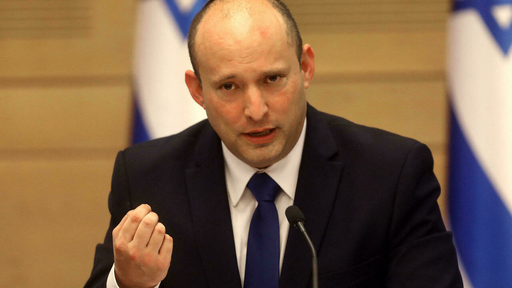On spies and trust – Julian E. Barnes, Ronen Bergman and Adam Goldman in NYT:
‘The cable sent this year by the outgoing C.I.A. officer in charge of building spy networks in Iran reverberated throughout the intelligence agency’s Langley headquarters, officials say: America’s network of informers had largely been lost to Tehran’s brutally efficient counterintelligence operations, which has stymied efforts to rebuild it.
Israel has helped fill the breach, officials say, its robust operations in Iran providing the United States with streams of reliable intelligence on Iran’s nuclear activities, missile programs and on its support for militias around the region.
The two countries’ intelligence services have a long history of cooperation and operated in virtual lock step during the Trump administration, which approved or was party to many Israeli operations in its shadow war against Iran.’
(…)
‘ “The sharing of intelligence and operational activity between Israel and the United States is one of the most important subjects on the agenda for the meeting,” said Maj. Gen. Aharon Zeevi Farkash, a former director of Israeli military intelligence. “Israel has developed unique capabilities for intelligence collection in a number of enemy countries, capabilities that the United States was not able to grow on its own and without which its national security would be vulnerable.”’
(…)
‘The risk of such dependence became clear in April when Israel set off explosives at Iran’s Natanz nuclear plant.
Mr. Netanyahu had ordered his national security officials to reduce the information that they conveyed to the United States about planned operations in Iran, American and Israeli officials said.
And on the day of the attack, Israel’s foreign intelligence agency, the Mossad, gave the United States less than two hours’ notice, according to American and Israeli officials, far too short a time for the United States to assess the operation or ask Israel to call it off.
Israeli and American officials interviewed for this article spoke on the condition of anonymity to discuss classified operations.
Israeli officials said they took the precautions because Americans had leaked information about some Israeli operations, a charge U.S. officials deny. Other Israeli officials say the Biden administration had been inattentive to their security concerns, too focused on reviving the Iran nuclear agreement that President Donald J. Trump had pulled out of.’
(…)
‘Mr. Burns called his counterpart, Yossi Cohen, the Mossad chief, expressing concern over the snub, according to people briefed on the call.
Mr. Cohen said that the belated notification was the result of operational constraints and uncertainty about when the Natanz operation would take place.
For the American-Israeli intelligence relationship, it was another a sharp turnabout.
Relations had soured during the Obama era.
The Obama White House, concerned that Israel was leaking information, kept the existence of the negotiations with Iran secret from Israel, a former Obama administration official said. Israeli intelligence learned of the meetings from its own sources.
Mr. Netanyahu was also convinced that American spy agencies were keeping him under surveillance, according to a former Israeli official.’
(…)
Israel began a wave of covert operations, keeping the Trump administration in the loop on a series of cyber and bombing attackson Iranian nuclear facilities and on the assassination of Iran’s chief nuclear scientist, Mohsen Fakhrizadeh, in November 2020, after the American election but before Mr. Biden took office.
The two countries also cooperated on two operations in 2020: a U.S. operation to kill the leader of Iran’s paramilitary Quds Force, Maj. Gen. Qassim Suleimani, and an Israeli operation to kill a Qaeda leader who had taken refuge in Tehran.
Mr. Pompeo, who later served as secretary of state, said that there was no relationship more important during his four years in the Trump administration than the one that the C.I.A. had with the Mossad.
“The two organizations really had a moment, an important moment in history,” he said in an interview in June.’
(…)
‘Mr. Bennett says he wants to open a new chapter in relations with the White House, and has promised a more constructive approach.
But the Mossad is already planning more secret operations in Iran. The question for the Biden administration is which are acceptable and when, General Zeevi Farkash said.
“The U.S. and Israel must jointly identify the red lines so that if Iran crosses them, Israel can act to prevent it from achieving military nuclear capacity,” he said.’
Read the article here.
So Netanyahu thought he was spied on by the allies in the US. Probably he was right. And he did his best to upset at least part of the American political establishment, in other words he did his best to be as untrustworthy as possible.
Obama didn’t trust Netanyahu, so he himself had to find out what was the nature of the nuclear agreement with Iran.
Secret services trust each other only if necessary and information usually is not shared but bartered.
The two-hour notice given before the attack in April on the nuclear plant in Natanz was not a very friendly gesture from the Mossad. Apparently the political (Netanyahu) and maybe also military establishment in Israel believed that Biden and his friends would try to thwart the attack.
Bennett’s rhetoric is slightly less confrontational, but his political orientation is not far away from his predecessor's ideology.
And more secret operations in Iran are planned, at the same time Lebanon is becoming more and more a failed state. And God knows what Saudi-Arabia is thinking and planning.
A volatile mix.
We are still betting on the rationality of the leaders and their understanding that war equals mutually assured destruction, which hopefully will prevent an all-out war, just small operations for the time being. Knowing of course that even a small operation can get quickly out of hand.
Talking about red lines. My red lines are not your red lines.
